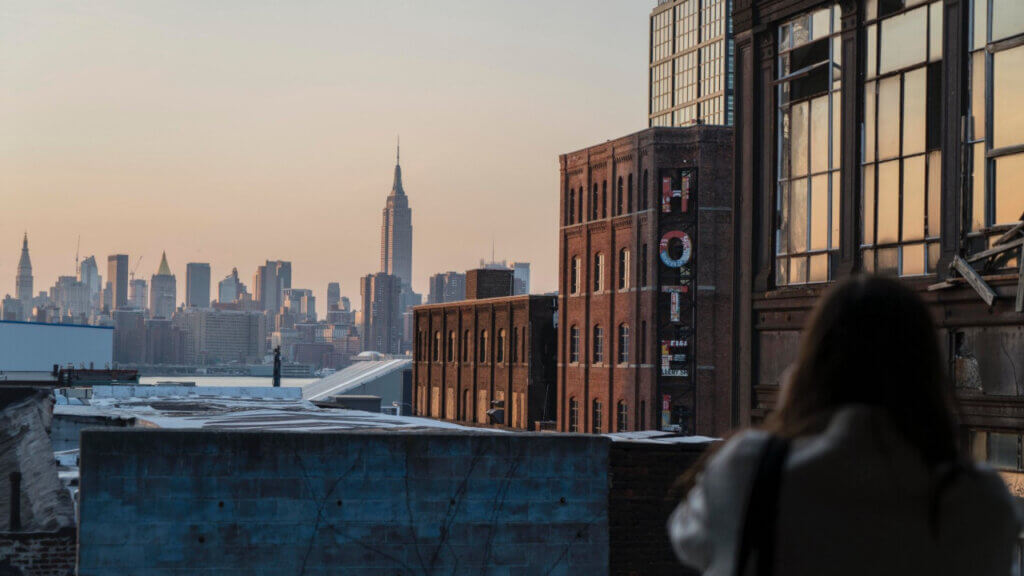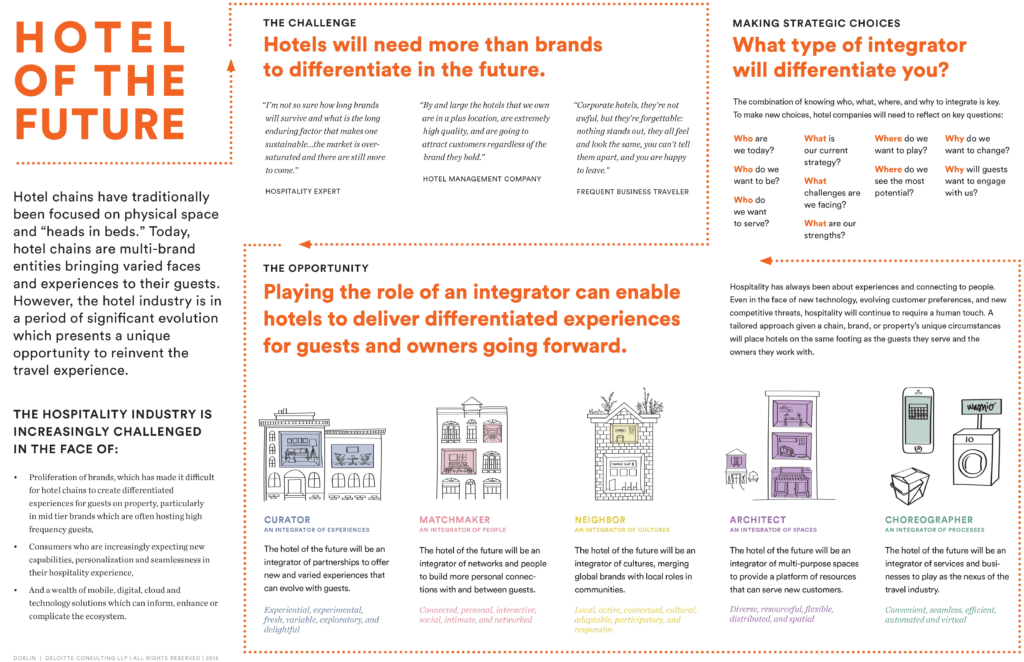
Hotels are in a period of significant evolution and opportunity.
NB: This is an article from Deloitte
From online travel agents to the commoditization of hotels, changes in the travel and hospitality industry are challenging hotels to move beyond brand identity and extend and deepen their relationships with travelers.
Subscribe to our weekly newsletter and stay up to date
Through in-depth interviews with frequent business travelers and onsite research at different types of hotels in major US cities, Deloitte, driven by research and insights from our innovation practice, Doblin has identified five integrator types that present new opportunities to evolve your hotel brand and services to meet changing customer expectations for their hotel experiences.
Future hotels will be (even more) about people
Hospitality will always be centered around customer experiences and connecting with people. Even as new technology, evolving customer preferences, and new competitive threats change the hotel experience, outstanding hospitality will still require a thoughtful human touch.
The hotel of the future will be an integrator with a new role to play: offering guests a memorable hotel experience uniquely tailored to their expectations for every stay.

Five types of integration guests expect from the hotel of the future:
Curator: An integrator of experiences
The curator integrates external partnerships to keep hospitality fresh and make guest experiences relevant. As curator, hotels can offer a variety of environments that support the mood and mindset guests want, delighting guests through choice and the ability to explore new hotel experiences.
Matchmaker: An integrator of people
The matchmaker reimagines guests as having an equal role in building personal connections with the hotel brand and between guests. A matchmaker extends and deepens relationships with guests by creating a culture around the brand and allowing the brand to be defined by the network of guests. Matchmakers draw on the current strengths of hotels—like space and hospitality—to build a compelling network of guests that attract more business.
Neighbor: An integrator of cultures
The neighbor expands the hotel into the community and engages locals. It’s a destination for hotel guests and locals, but it’s more than a portal to the local culture—it’s an active participant in the community, a good neighbor that fits into its surrounding context. The neighbor integrates by merging global brands with local cultures. This requires adapting to context while maintaining an overall branded experience and service.
Architect: An integrator of spaces
The architect uses and repurposes spaces and assets. Rather than thinking of a single building in a single location for a single purpose, the architect maximizes space and resources to think outside that box—quite literally. The architect integrates multi-purpose spaces within and outside the single hotel to offer a completely new level of flexibility to guests, while serving new customers. It’s reimagining hotels beyond heads and beds.
Choreographer: An integrator of processes
The choreographer focuses on everything but physical space and real estate assets. It’s the virtual concierge and the logistics guru. The choreographer integrates services and businesses to act as the nexus of the travel industry—and delivers a seamless and convenient experience for the business traveler.
Reimagining resources and capabilities for the future hotel experience
Which of these opportunities will suit your hotel? Any of them could—in whatever combinations suit your guests and your locations. But becoming an integrator will require you to rethink resources and capabilities and how you deploy them.
Today, most traditional hotels operate in silos defined by brands and spaces. Future hotels will build bridges to access new resources, balance resources to bring new life to existing capabilities, mobilize current resources for new partnerships, and merge outside potential into new opportunity areas.
In establishing new strategies for your hotel, consider every resource—space, people, brands, services—and consider every capability—technology, human capital, user experiences, operations, business models—to capitalize on the new opportunities in the hotel of the future.




